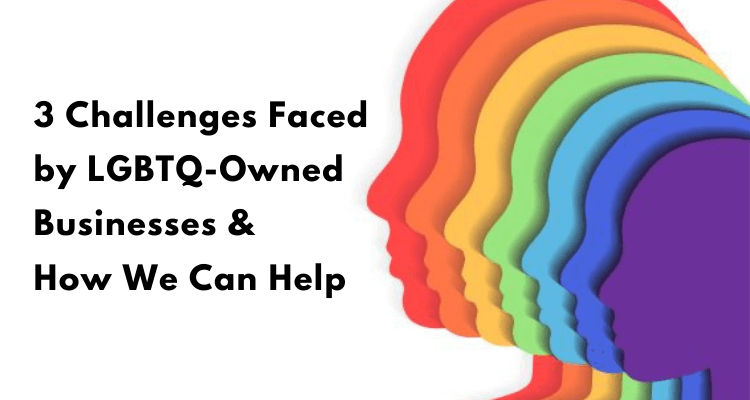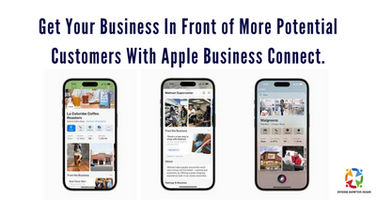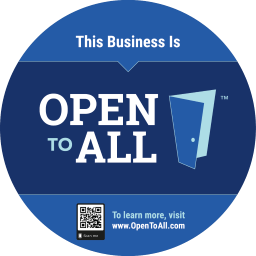
As everyone recognizes and celebrates Pride Month, it's vital to acknowledge that the LGBTQ+ community continues to face challenges throughout the year. Although some progress has been made, there is still work that needs to be done to ensure equality and inclusivity for LGBTQ+ individuals in society. LGBTQ+ entrepreneurs face numerous obstacles, including inadequate state and federal support, access to funding and capital, and a lack of business networks and role models. In this post, my aim is to bring attention to these three issues and explore strategies supporters can implore to help.
Challenge 1: Inadequate State and Federal Support
One of the biggest challenges faced by LGBTQ+ entrepreneurs is inadequate state and federal support. Here are some common examples of this lack of support:
- Discriminatory Laws and Regulations: In some areas, laws or regulations are put in place which explicitly or implicitly discriminate against LGBTQ individuals or businesses. These laws can limit the rights and protections available to LGBTQ-owned businesses, making it difficult for them to operate on an equal footing with non-LGBTQ businesses.
- Lack of Anti-Discrimination Laws: Also in some areas, there may be a lack of comprehensive anti-discrimination laws that clearly protect against discrimination based on sexual orientation and gender identity.
- Limited Access to Government Contracts: LGBTQ businesses may face challenges accessing government contracts due to discriminatory practices or biased procurement processes.
- Unequal Tax Treatment: LGBTQ-owned businesses may face unequal tax treatment compared to non-LGBTQ businesses. This treatment can include limitations on tax deductions or credits, unequal treatment of same-sex partnerships or marriages, or other tax-related barriers that can affect their financial viability.
Strategy 1: Advocate for Better State and Federal Laws
Supporters can actively help LGBTQ+ businesses by engaging in lobbying efforts and public advocacy to support legislation that promotes inclusivity and protects against discrimination based on sexual orientation and gender identity. This can involve: contacting elected officials, attending public hearings, and joining or supporting organizations that champion LGBTQ rights in the business community.

Challenge 2: Difficulty in Accessing Funding and Capital
Another challenge faced by LGBTQ+ entrepreneurs is difficulty in accessing funding and capital. An analysis by the Movement Advancement Project and Center for LGBTQ Economic Advancement & Research conducted in 2021; found that nearly half of the LGBTQ-owned small businesses that applied for loans were denied financing. LGBTQ-owned businesses reported they received no funding compared to non-LGBTQ-owned businesses.
Studies have also shown that female LBT entrepreneurs raise less than $750K, while male GBT entrepreneurs raise more than $2M. This disparity mirrors the gender funding gap already seen in the world of business. Lesbian entrepreneurs are also at a distinct disadvantage compared to gay male business owners, with just 3% of lesbian-owned businesses reporting revenue over $5 million compared to 12% for gay men. The imbalance shows that LGBTQ+ women are twice as likely to report a lack of funding for their businesses compared to LGBTQ+ men, resulting in even more significant financial challenges and obstacles. This funding gap is especially troubling because LGBTQ-owned businesses are more likely to be women-owned and minority-owned. LGBTQ+ entrepreneurs of color face further obstacles related to racial marginalization. This marginalization can be attributed to the pervasiveness of implicit bias and systemic discrimination in financial institutions. This intersectionality underscores the importance of creating more supportive resources for the LGBTQ-owned business community.
Strategy 2: Provide Financial Assistance or Support Causes That Does
The best way to assist these businesses is by providing monetary aid like grants, loans, or venture capital investments. Organizations like StartOut and the Global Equality Fund are taking significant steps to support LGBTQ+ businesses, but more can be done. Donations to an organization that provides programs to help LGBTQ+ business owners gain funding would be beneficial. Another way to offer financial backing is by engaging LGBTQ-owned suppliers and vendors to procure goods or services for your enterprise. By standing united as a community and demonstrating our support for LGBTQ+ entrepreneurship, we can help create an economy that's fair and inclusive for all.

Challenge 3: Lack of Business Networks and Role Models
For LGBTQ+ entrepreneurs, a significant challenge they face in the business world is the lack of business networks and role models. This issue is particularly challenging for those who operate in rural areas or conservative states where the LGBTQ+ community may be smaller. Without a supportive business network, LGBTQ+ entrepreneurs may struggle to obtain funding, mentorship, and other opportunities that can help their businesses grow. Moreover, the lack of openly LGBTQ+ role models in business makes it difficult for younger individuals to see themselves represented in leadership positions, discouraging them from pursuing entrepreneurial endeavors. Supporters must create safe spaces and virtual communities for LGBTQ+ business owners to connect, share knowledge, and gain resources. These efforts will not only help LGBTQ+ entrepreneurs succeed but also inspire more individuals in the community to pursue entrepreneurship and contribute to the business world.
Strategy 3: Create Mentorship and Networking Opportunities
The challenges that LGBTQ+ entrepreneurs face can be overwhelming, posing a barrier to success in the business world. But with networking opportunities, the guidance and support of seasoned mentors, and role models who have overcome similar challenges. These entrepreneurs can gain the success they want to achieve. In the Hampton Roads area, there are several organizations providing networking and mentorship opportunities for LGBTQ+ entrepreneurs, including Diverse Hampton Roads and Thriving Trans Men Of Color, to name a few. These organizations offer a safe and welcoming space for LGBTQ+ entrepreneurs to come together, share their knowledge, and experiences, and support one another. To help foster this network, supporters can connect LGBTQ+ entrepreneurs with successful LGBTQ+ business owners, investors, and other professionals in their respective fields. By building a strong support system, LGBTQ+ entrepreneurs can thrive and achieve their goals.
In conclusion, I want to say thank you for reading this post as we explored the challenges faced by LGBTQ-owned businesses and ways to support them. I'm sure there are a lot more challenges that I did not address. Nevertheless, I hope this blog amplifies the struggles these businesses go through and the importance of diversity, equality, and inclusivity. As well as inspiring more people to become supporters. The work continues beyond Pride month. Please share this on social media, with organizations, and people you know who would benefit from the information.
If you are an LGBTQ+ business owner and would like to share your thoughts and any experiences, I would love to hear them. I'm a strong believer that "we are all connected and we are all one".








.jpg)